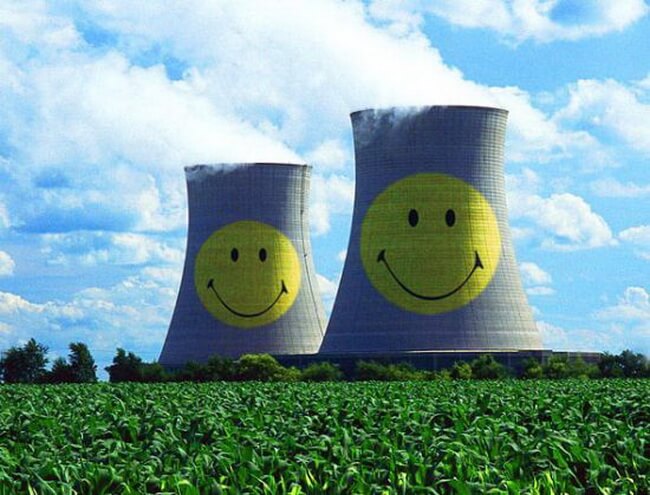- Get link
- X
- Other Apps

They are also environmentally friendly.
Nuclear power plants have always been criticized by people who, by and large, do not know anything about them. Such stations received the first blow to their reputation in 1986, when the fourth reactor of the Chernobyl nuclear power plant accident occurred due to the human factor, as a result of which a gigantic amount of radiation was released into the atmosphere. But despite the fact that modern nuclear power plants are built so reliably that they can withstand even a targeted crash of an airplane on them, people are still scared by the story that happened at the end of the 20th century. True, even such superstructures are not able to withstand powerful earthquakes, as is the case with Japan, where almost the entire station was damaged. And now add here questions about waste, and you will definitely take the position of those who believe that it is high time to close this kind of energy.
You may be surprised, but recent studies have shown that environmental emissions from nuclear power plants saved nearly two million lives.
“I was very upset by all these negative reviews and unreasonable hysteria about nuclear energy,” says Pushker A. Karecha from the NASA Goddard Institute for Space Studies lab.
More surprisingly, such people do not take into account the fact that the almost complete sterility and absolutely complete absence of harmful emissions from nuclear power plants positively affects the global environmental situation. While fossil-powered power plants release thousands of tons of greenhouse gases and pollutants into the atmosphere each year. The only thing that is released from the cooling towers of nuclear stations is water vapor. It was this fact that prompted Karech to conduct further research.
Karech decided to conduct a study on the number of premature deaths associated with pollution from nuclear plants, but did not find any information on this. But he and his research partner James E. Hansen found information for 2007, where mortality could be correlated with atomic energy and fossil-powered power plants. Their calculations showed that nuclear energy saved a total of 1.8 million lives, due to the fact that it turned out to be much cleaner than mining, fuel mining and so on. Karecha and Hansen decided not to stop there and carried out calculations of the predicted number of deaths if nuclear plants were completely replaced by fossil fuel stations by 2050. It turned out that gas stations added another 400,000 deaths to this list, and coal stations, due to their strong polluting emissions, as much as 7 million premature deaths.
The data analysis also showed that if, for example, gas were used instead of nuclear power in the period from 1971 to 2009, an additional 64 gigatons of carbon would be emitted into the atmosphere. And when using the same natural gas as a power source until 2050, this figure could increase from 80 to 240 gigatons of carbon.
People’s confidence in the dangers of nuclear power is so great that they will try to challenge these figures, says eco-financier Bas van Ruyven.
But he also agrees with the numbers and with a team of researchers who have come to the conclusion that nuclear energy is important.
The article is based on materials .
- Get link
- X
- Other Apps
Comments
Post a Comment